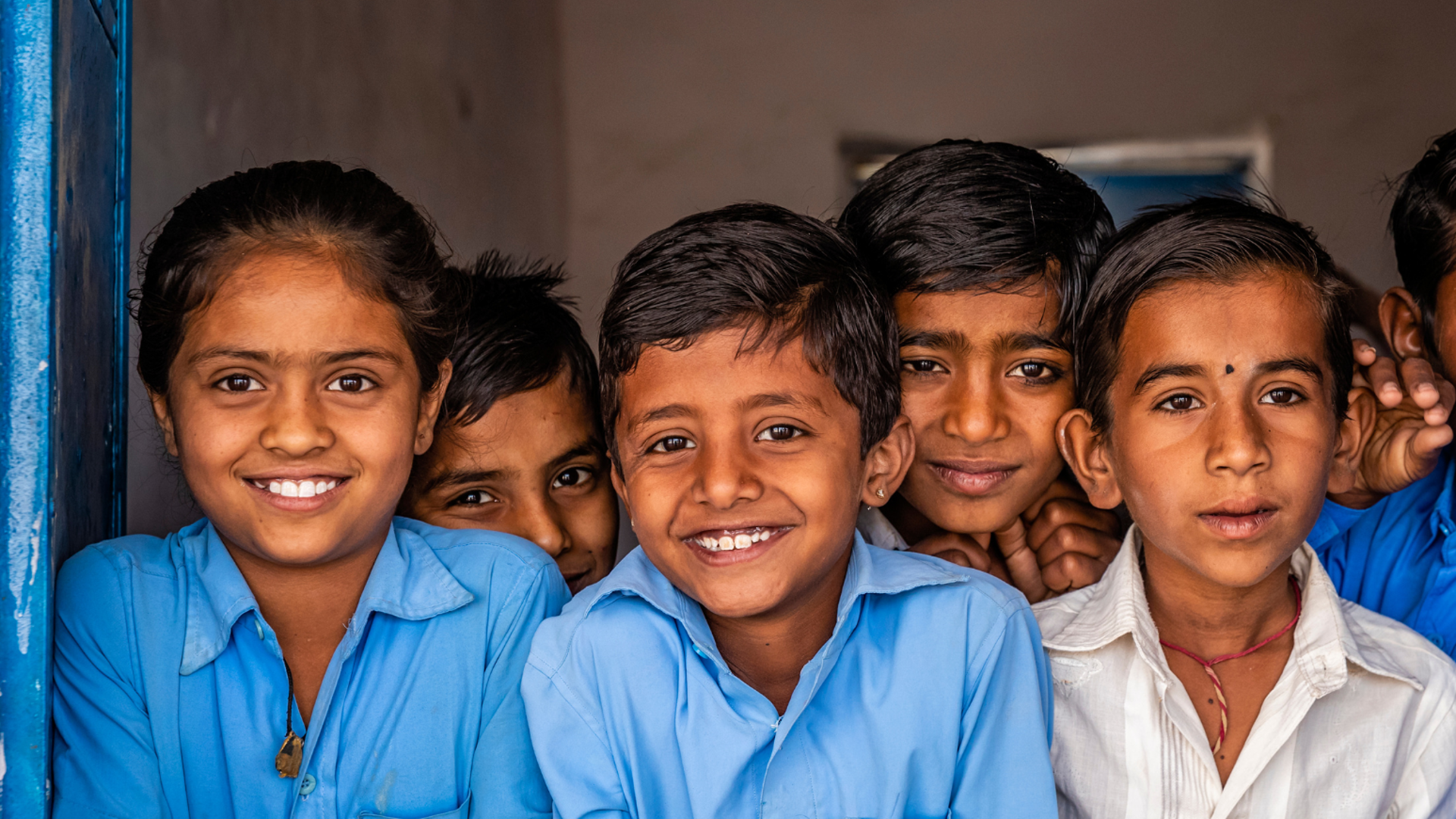
We’re on the ground in Bangladesh providing emergency food supplies as well as access to safe and clean water sources through constructing water wells.
DONATE NOW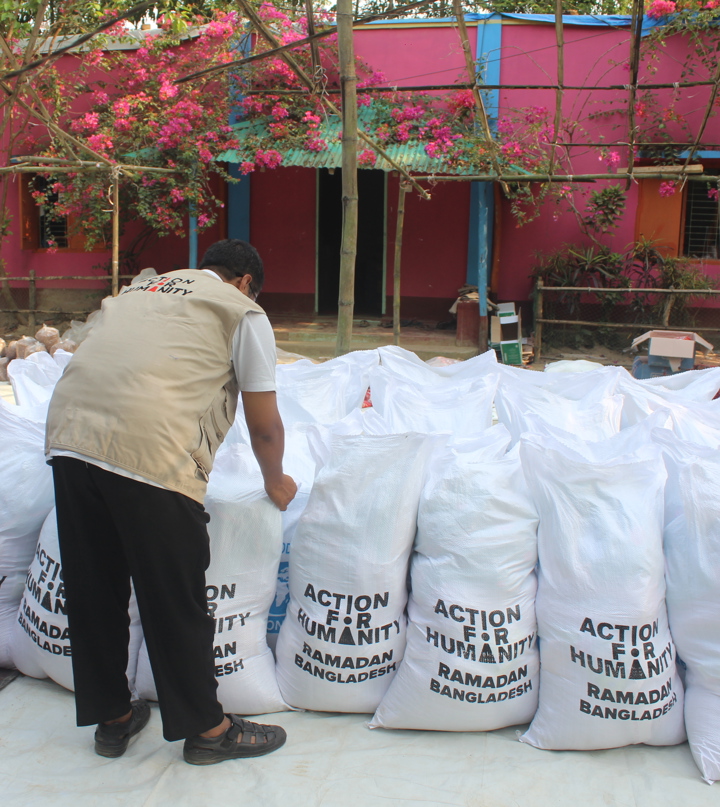
Support Our Bangladesh Projects
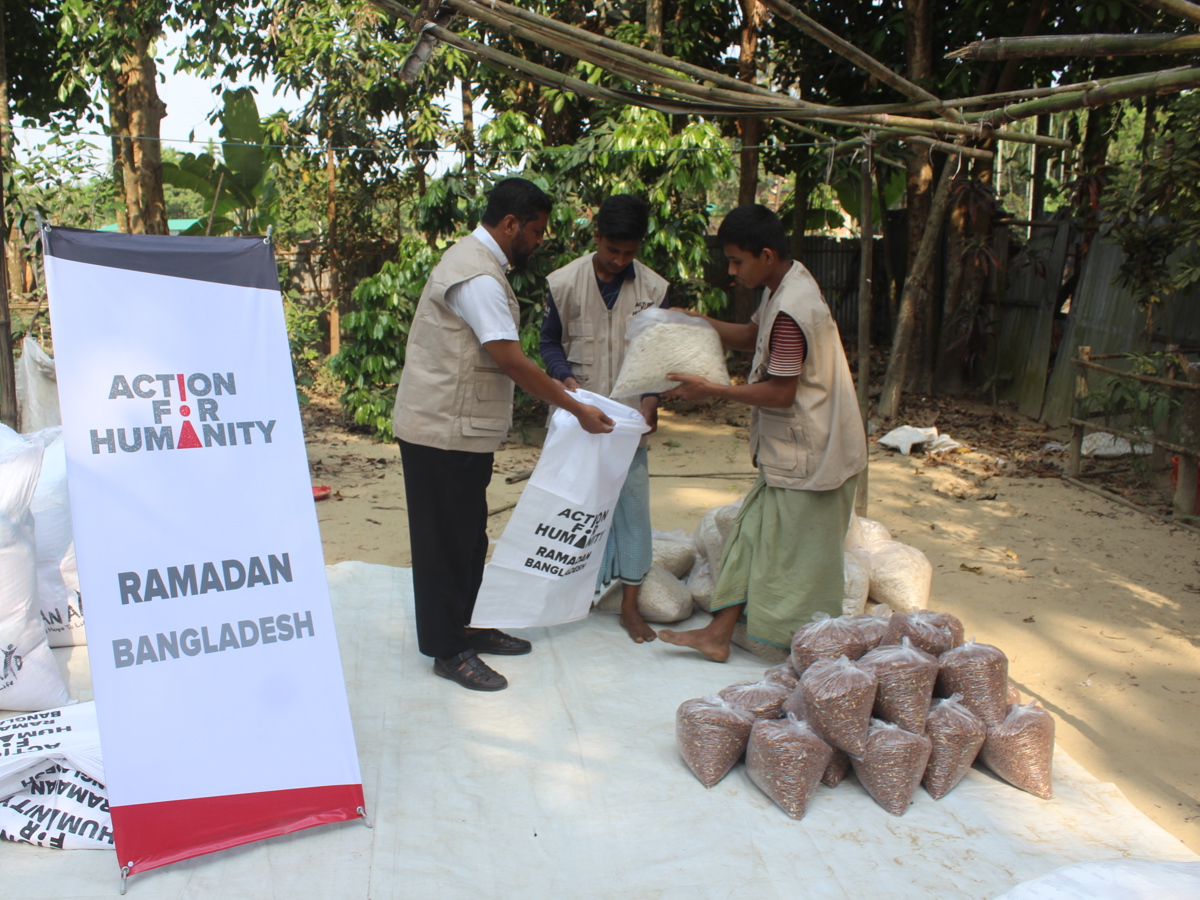
Humanitarian Overview
The Rohingya people have faced decades of systematic discrimination, statelessness and targeted violence in Rakhine State, Myanmar. Such persecution has forced Rohingya women, girls, boys and men into Bangladesh, which currently hosts 943,529 Rohingya refugees in Cox’s Bazar District, including 490,635 children.
It is predicted that by 2050, one in seven people will be displaced due to climate change. Bangladesh is facing a complex humanitarian situation due to the Rohingya refugee crisis and due to climate-induced disasters such as cyclones and floods. Public health emergencies such as diphtheria, measles, cholera, and dengue also pose risks.
We’re on the ground in Bangladesh providing emergency food supplies as well as access to safe and clean water sources through constructing water wells.
Donate Now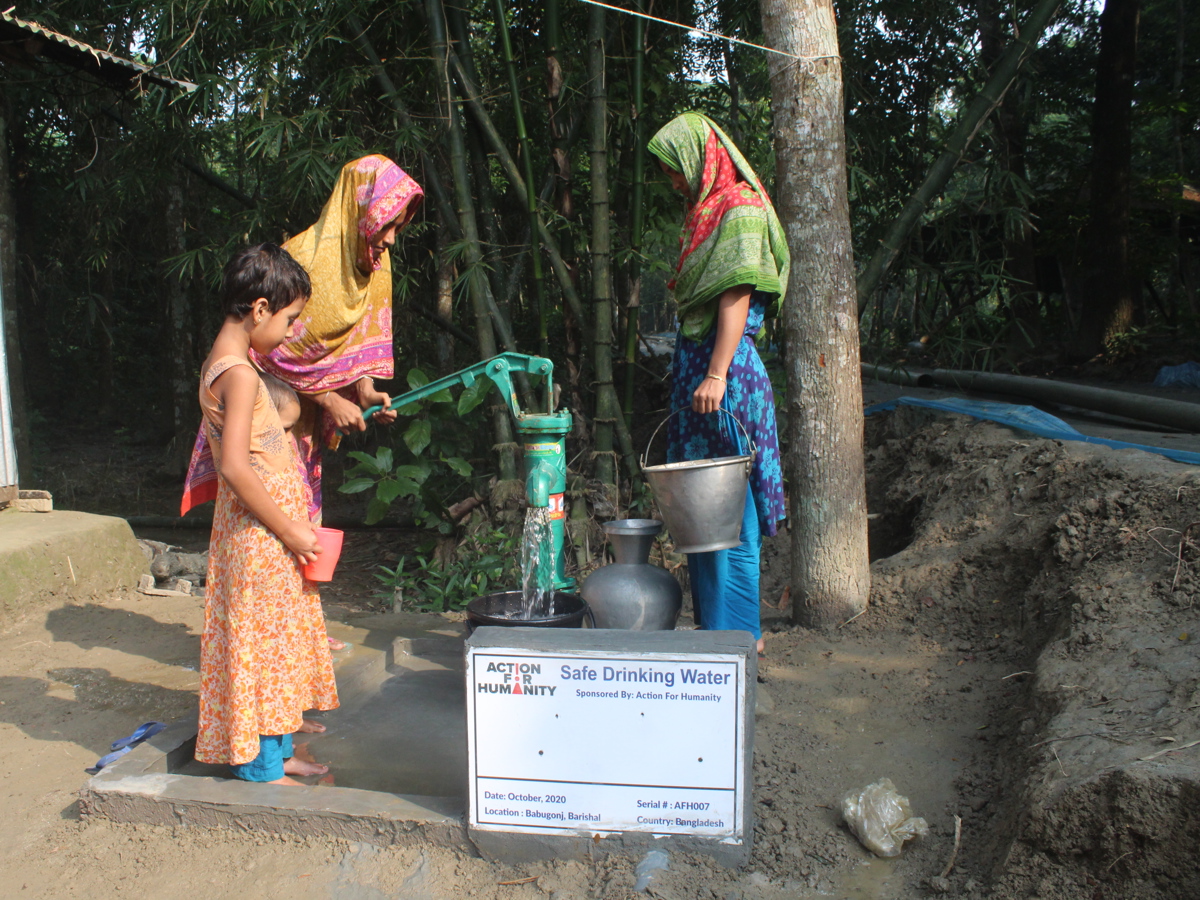
Water and Sanitation
More than 2 million people in Bangladesh lack access to an improved water source and 48 million lack improved sanitation. In Cox’s Bazar, water sources have dried up due to environmental reasons. This means that families have to walk several kilometres to fetch a day’s water supply.
We’re addressing this situation by constructing new water wells. The easy accessibility of the wells means that people no longer need to walk a long distance to collect water and wait in the queue for hours. Additionally, the use of safe water ensures less waterborne diseases and good hygiene practices among the refugees and surrounding local communities in the long run.
Donate Now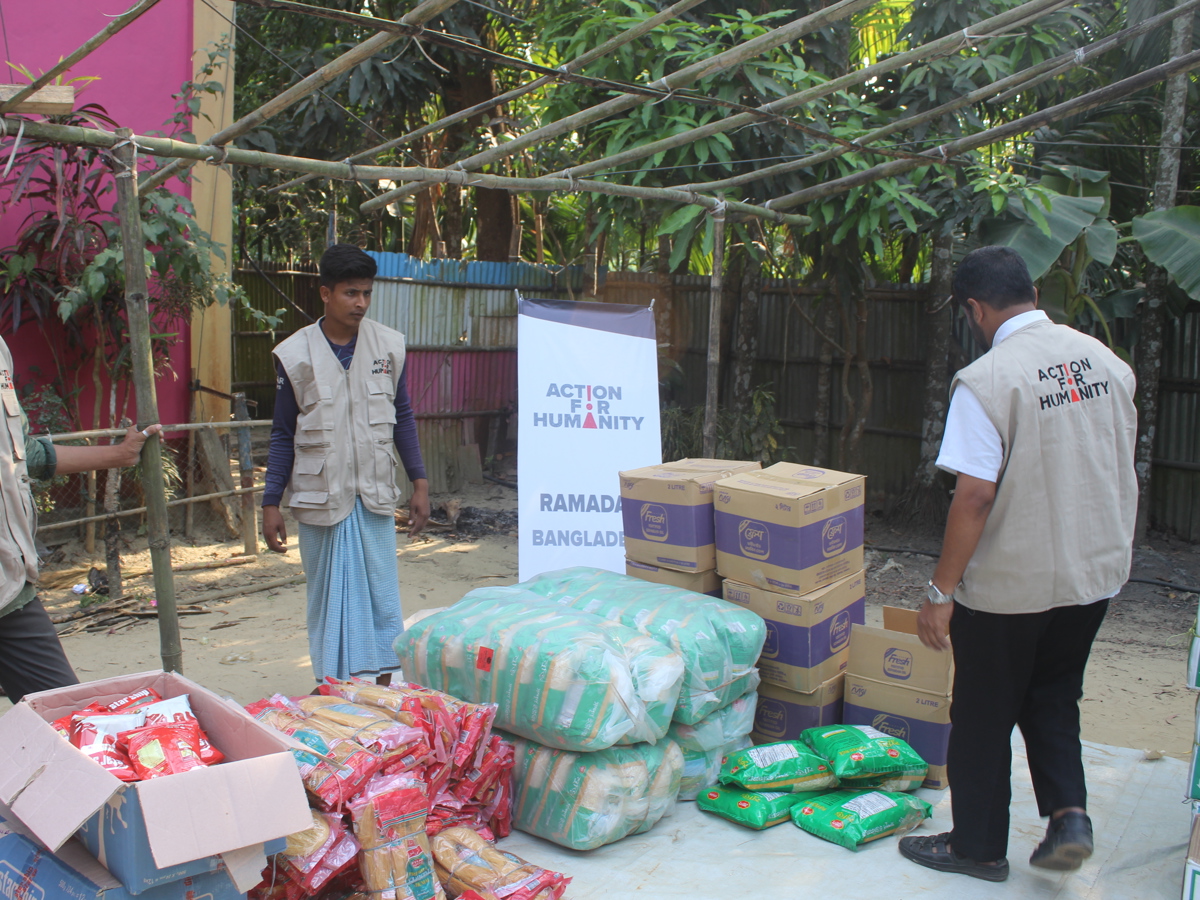
Food
The Rohingya population in Bangladesh continues to grow at a fast pace which “has resulted in a critical humanitarian emergency”. A lack of livelihood opportunities has led to high dependency on aid to secure the basic meals. Moreover, the lack of food may lead refugee children to child labour and human trafficking in order to help providing a means to feed the family.
We provide families with locally-sourced food parcels. Each parcel contains food items with high nutrient density and cultural preference. As a result, the project also ensures recommended nutrient intake for at least one month.

